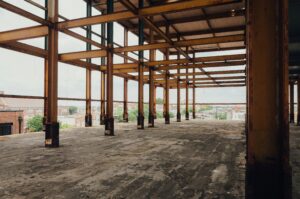Sustainable Materials in Retail Construction: A Project Manager’s Role


The retail construction industry is transforming significantly as sustainability takes center stage. Project managers play a crucial role in integrating sustainable materials into retail spaces. These materials reduce environmental impact and enhance the buildings’ overall appeal, making them more attractive to eco-conscious consumers. As sustainable construction becomes a priority, understanding the role of a project manager in this transition is essential.
Understanding Sustainable Materials in Retail Construction
Sustainable materials have a minimal impact on the environment throughout their life cycle. In retail construction, using these materials means considering their source, production process, durability, and disposal. Common sustainable materials include recycled steel, reclaimed wood, bamboo, and low-VOC (volatile organic compound) paints. These materials not only reduce a building’s carbon footprint but also promote healthier indoor environments by minimizing harmful chemicals.
The use of sustainable materials in retail spaces also helps reduce operational costs. For example, energy-efficient windows and insulation can lower heating and cooling expenses, while eco-friendly flooring and fixtures require less maintenance over time. For project managers, selecting the right sustainable materials involves balancing environmental benefits with budgetary constraints and long-term performance.
The Role of a Project Manager in Sustainable Construction
A project manager is at the heart of any retail construction project, coordinating various teams and ensuring the project meets its sustainability goals. One of their key responsibilities is to source sustainable materials that align with the project’s vision and comply with local regulations. This requires staying up-to-date with the latest innovations in sustainable construction and understanding the environmental certifications associated with different materials, such as LEED (Leadership in Energy and Environmental Design).
Additionally, project managers must work closely with architects, engineers, and contractors to integrate these materials into the design without compromising functionality or aesthetics. This coordination is critical to ensuring that sustainable materials are used and implemented in a way that maximizes their benefits. Project managers must often balance competing priorities, such as cost, sustainability, and time, to keep the project on track.
Managing Cost and Sustainability
Cost management is one of the biggest challenges when integrating sustainable materials into retail construction. While these materials can sometimes be more expensive upfront, their long-term benefits often justify the initial investment. A project manager must make informed decisions about where to allocate resources, ensuring the sustainability goals are met without exceeding the budget.
One approach to managing costs is to focus on materials that offer both sustainability and durability. For example, bamboo is a fast-growing, renewable resource that is also incredibly strong, making it a cost-effective option for flooring and other structural elements. Similarly, recycled materials, such as steel or reclaimed wood, are often less expensive than virgin materials and have a lower environmental impact. By identifying opportunities to reduce waste and increase efficiency, project managers can ensure that sustainable materials are used effectively without driving up costs.
Ensuring Compliance and Certification
Sustainable construction projects often require certification from organizations like LEED or BREEAM (Building Research Establishment Environmental Assessment Method). These certifications are critical in demonstrating a building’s environmental performance and can enhance a retailer’s brand image. Project managers are responsible for ensuring that all aspects of the construction process meet the requirements for these certifications.
Achieving certification involves more than just using sustainable materials—it requires a holistic approach to design, construction, and operation. Project managers must oversee everything from energy efficiency to water conservation measures to ensure the project meets the stringent criteria. This means coordinating with various stakeholders, including environmental consultants, to document the project’s compliance with sustainability standards.
The Long-Term Impact of Sustainable Retail Spaces
Sustainable retail spaces benefit the environment and improve the customer experience. Consumers are increasingly drawn to businesses committed to sustainability, and eco-friendly retail spaces can enhance a brand’s reputation. Project managers play a crucial role in creating these spaces by ensuring that sustainable materials are used effectively and that the final product aligns with the retailer’s values.
In the long term, sustainable materials contribute to the longevity and resilience of retail spaces. Materials like recycled steel and eco-friendly insulation help buildings withstand environmental stressors, reducing the need for repairs and replacements. This durability translates into cost savings for retailers and creates a more sustainable retail industry. Project managers who prioritize sustainable construction practices help the environment and set the foundation for a more efficient and cost-effective future in retail construction.
The role of a project manager in retail construction extends beyond managing timelines and budgets. Their involvement in selecting and integrating sustainable materials is crucial to creating environmentally friendly, cost-effective retail spaces that resonate with modern consumers. As sustainability influences construction practices, project managers will play an increasingly vital role in driving the industry toward a greener future.
